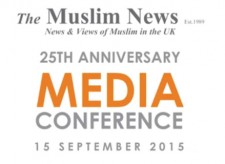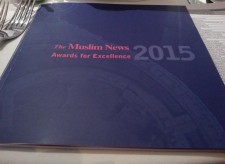Ala Abbas
It is safe to say that the US presidential elections generated an unprecedented level of media coverage. US news channels excitedly reported on endless Trumpisms while social media was able to create an important buzz surrounding the Republican candidate in a way that #millifandom never could for the UK elections.
Presidential candidate Donald Trump wasn’t merely good at working the podium at his rallies. In a Machiavellian stroke of media savviness, he put out 3 or 4 sound bites a day and tweeted like a man possessed, lapping up the attention it brought his campaign, completely indifferent to the negative ramifications of what he was saying, because it really didn’t matter as long as all eyes were on him. He was the Kim Kardashian of politics. He knew that he had to put out a consistent stream of rants that grew more and more ridiculous with time in the hope that when it came to election crunch time he would ‘break the internet’.
TV-based news gave him so much airtime that he became “the most media-focused election spectacle this country has ever witnessed”, according to MediaQuant, a Media Analytics firm in the US. The firm measures the “media value” of any given subject by turning its media mentions into a monetary value. Compared with 2012 elections, Trump earned more than three and a half times the media value of Barack Obama and more than six times that of Mitt Romney.
According to MediaQuant, this kind of publicity “is significantly more effective in driving market awareness than paid media (advertising).” During the GOP primary, anti-Trump groups within the GOP spent nearly $30 million in advertising to unseat Donald Trump as the party’s potential nominee. Trump, on the other hand, spent nothing but still managed to generate $400 million in news coverage.
For an industry that relies almost solely on ratings to survive, Trump was a godsend. Les Moonves, Chairman of CBS, famously said of the Trump effect that “It may not be good for America, but it’s damn good for CBS. The money’s rolling in…This is fun.” The Trump Effect did more than help the TV networks survive. Being huge conglomerates, an injection of money at this scale is crucial. Thanks to the Telecommunications Act passed under Bill Clinton, which allowed a media proprietor to own more than one outlet in the same market, these corporations grew and grew. In 1983 90 per cent of media was controlled by 50 companies, but in 2010 this went down to a mere six companies. This goes some way to explaining why in the 2015 primaries a third of coverage was spent on Trump alone, more than both Democratic candidates combined.
Issues of balance and fairness rarely arise if there is no body or law to hold media organisations to account. The Fairness Doctrine, which was implemented in the 1940s by the Federal Communications Commission, was scrapped in1987 by Ronald Reagan. Apparently, it violated the First Amendment rights of the American constitution. The Communications Act of 1934 left no room for Public Service broadcasting, and to this day, the US is the only country without a state-funded broadcaster.
It may have been largely negative, but the disproportionate coverage of Trump in the mainstream media set the agenda for the debate, particularly for Social media. Whether it was his opponents re-quoting his shocking sound bites or his supporters sharing fake Facebook news stories, the Trump Effect had tentacles that went far beyond the traditional news media.
“They just keep passing stuff around. Nobody fact-checks anything anymore – I mean, that’s how Trump got elected,” said Paul Horner, the 38-year old fake news writer who has made a living from creating viral news hoaxes.
He told the Washington Post: “My sites were picked up by Trump supporters all the time. I think Trump is in the White House because of me. His followers don’t fact-check anything – they’ll post everything, believe anything.” Horner alleges that Trump’s own campaign manager re-posted a fake story he wrote about an anti-Trump protester getting paid $3,500 for protesting at one of his rallies.
President Obama raised concerns about the potential damage that fake news can do during election time, stories such as a report just days before the election that an FBI agent investigating Hillary Clinton’s use of a private email server had killed himself.
Google has given €150,000 to UK organisations working on fact-checking projects to help journalists and the public avoid falling for fake stories, but Facebook CEO, Mark Zuckerberg, denies there is a problem: “Of all the content on Facebook, more than 99% of what people see is authentic. Only a very small amount is fake news and hoaxes. The hoaxes that do exist are not limited to one partisan view, or even to politics. Overall, this makes it extremely unlikely hoaxes changed the outcome of this election in one direction or the other.”
The best person at making up fake news during the election campaign was Trump himself: his claim that thousands of people in New Jersey cheered as 9/11 happened, his claim that American Christians don’t have a lobby, his claim that the Mexican Government is forcing its criminals to cross into the US as a money saving tactic, his theory that autism is an “epidemic” caused by childhood vaccinations, his endless obsession with Barack Obama’s birth certificate and many more.
Ultimately it is not within the remit of social media to vet the stories that are circulated on it. It is meant to be a reflection of the zeitgeist, of what ideas are trending at any one time. Most people will be looking towards veteran news reporters to bring them the news, where most editorial responsibility lies, but where that responsibility has long been abandoned. The news industry in the US was once capable of unearthing huge scandals and unseating presidents, but now it is being strung along by those in power. Like Reagan and Clinton before him, Trump wants to loosen the regulations surrounding media reporting. Now more than ever, new regulations need to be put in place.
















